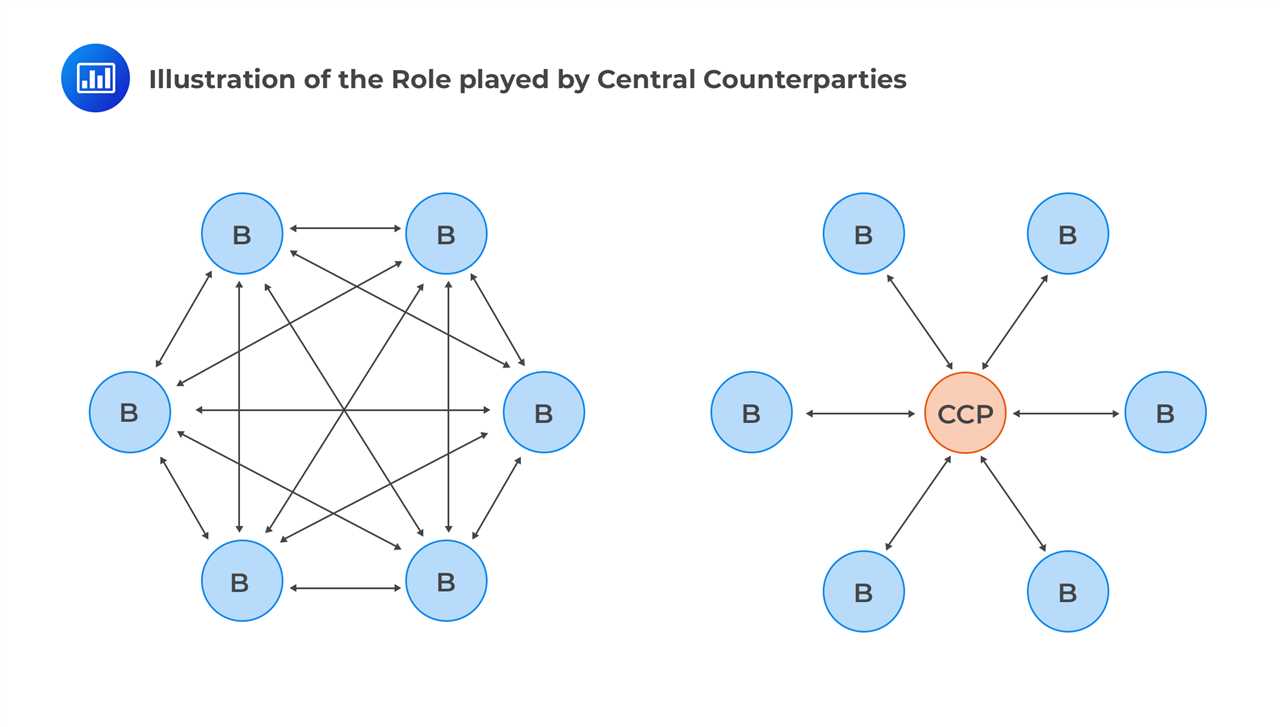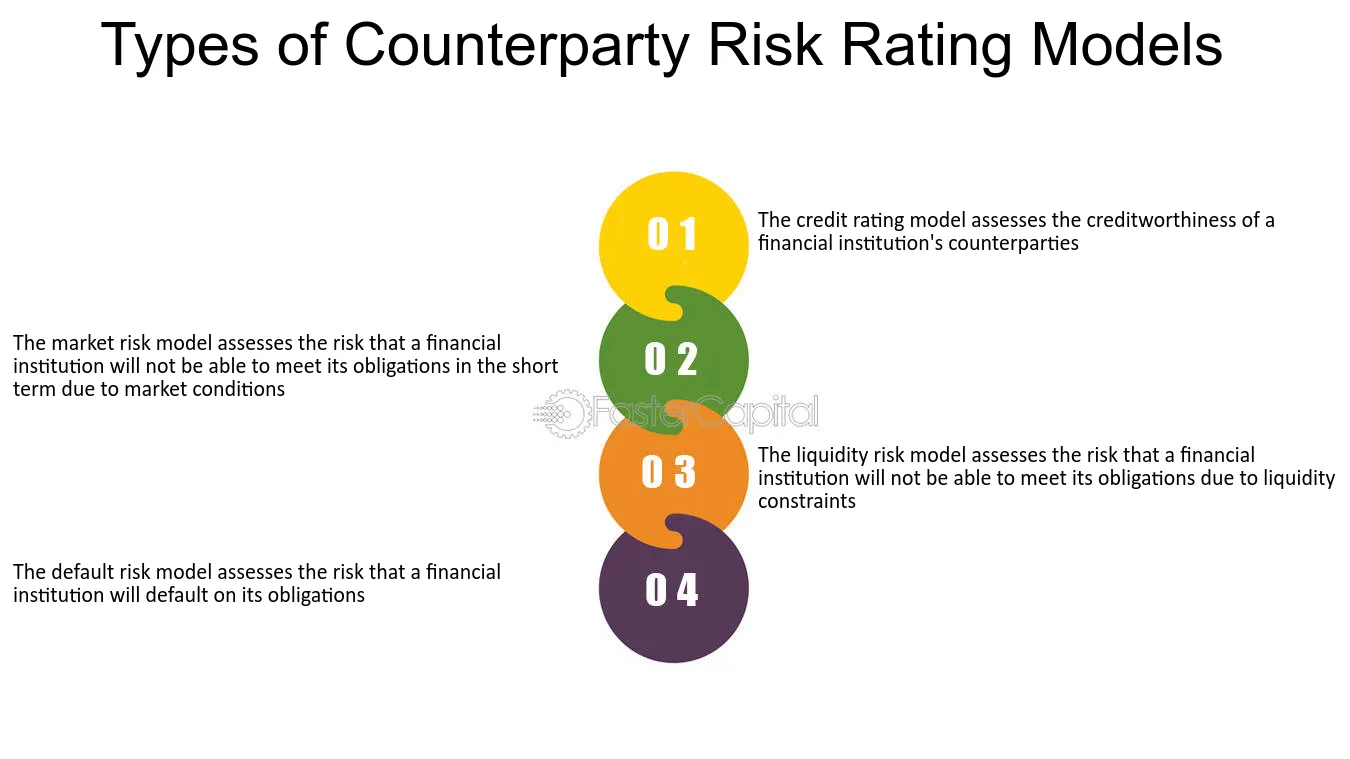Counterparty: Definition, Types, and Examples
A counterparty is a term used in finance and business to refer to the other party involved in a financial transaction or contract. It can be an individual, a company, or even a government entity. In simple terms, a counterparty is the person or entity with whom you enter into a financial agreement.
There are various types of counterparties, each with its own characteristics and risks. The most common types include:
1. Individual Counterparty: This refers to an individual person who is involved in a financial transaction or contract. It can be a retail investor, a high-net-worth individual, or even an employee of a company.
2. Corporate Counterparty: This refers to a company or corporation that is involved in a financial transaction or contract. It can be a small business, a multinational corporation, or any other type of company.
3. Institutional Counterparty: This refers to financial institutions such as banks, insurance companies, pension funds, and hedge funds. These institutions often engage in complex financial transactions and are considered to be sophisticated counterparties.
4. Government Counterparty: This refers to government entities, such as central banks, treasury departments, and government agencies. These entities often engage in financial transactions for various purposes, including monetary policy and fiscal management.
Examples of counterparties can vary depending on the context. For instance, if you are a retail investor buying stocks, the counterparty would be the brokerage firm or the market maker. If you are a company issuing bonds, the counterparty would be the investors who buy those bonds. In derivatives trading, the counterparty would be the other party with whom you enter into a derivative contract.
It is important to assess the creditworthiness and reliability of a counterparty before entering into any financial agreement. This is because the financial health and stability of the counterparty can have a significant impact on the success and outcome of the transaction or contract.
What is a Counterparty?
A counterparty is a term commonly used in finance and business to refer to the other party involved in a financial transaction or contract. It can be an individual, a company, or even a government entity. In simple terms, a counterparty is the person or entity with whom you are entering into a financial agreement.
When engaging in financial transactions, it is important to understand the role and significance of the counterparty. The counterparty is the party on the opposite side of the transaction, and their actions and financial stability can directly impact the success or failure of the transaction.
Counterparties can be classified into different types based on their relationship to the transaction. Some common types of counterparties include:
| Type of Counterparty | Description |
|---|---|
| Individuals | Individuals can be counterparties in various financial transactions, such as buying or selling stocks, bonds, or other securities. |
| Companies | Companies often act as counterparties in business transactions, such as mergers and acquisitions, supply agreements, or loan agreements. |
| Financial Institutions | Banks, insurance companies, and other financial institutions frequently act as counterparties in financial transactions, such as providing loans, issuing insurance policies, or trading derivatives. |
| Government Entities | Government entities, such as central banks or government agencies, can also be counterparties in financial transactions, such as issuing bonds or entering into currency exchange agreements. |
It is essential to assess the creditworthiness and reliability of a counterparty before entering into any financial agreement. This involves conducting due diligence, reviewing financial statements, and considering the counterparty’s reputation and track record.
Examples of counterparties can vary depending on the specific transaction or industry. For instance, in a stock trade, the counterparty could be an individual investor or a brokerage firm. In a loan agreement, the counterparty could be a bank or a lending institution. It is crucial to identify and understand the counterparty’s role and responsibilities in each transaction to mitigate potential risks and ensure a successful outcome.
Types of Counterparties
Counterparties can be classified into different types based on their nature and relationship with the primary party. These types include:
1. Financial Institutions

Financial institutions such as banks, investment firms, and insurance companies often act as counterparties in various financial transactions. They provide financial services and products to individuals, businesses, and governments, and engage in transactions such as loans, investments, and insurance contracts. These institutions play a crucial role in the global economy by facilitating the flow of funds and managing financial risks.
2. Corporations
Corporations can also act as counterparties in business transactions. They may enter into contracts with other companies or individuals for the purchase or sale of goods, services, or assets. These contracts can include agreements for the supply of raw materials, the provision of professional services, or the acquisition of real estate. Corporations often engage in hedging strategies to manage their financial risks and may enter into derivative contracts with counterparties to mitigate exposure to fluctuations in interest rates, exchange rates, or commodity prices.
3. Government Entities
Government entities, such as central banks, regulatory agencies, and public institutions, can also be counterparties in certain transactions. They may engage in financial transactions to manage monetary policy, regulate financial markets, or provide funding for public projects. For example, central banks may act as counterparties in foreign exchange transactions to stabilize the value of their national currency, while regulatory agencies may act as counterparties in derivative transactions to ensure compliance with financial regulations.
4. Individuals
Individuals can also be counterparties in various transactions, such as personal loans, mortgages, or insurance contracts. When an individual borrows money from a bank, for example, the bank becomes the counterparty to the loan agreement. Similarly, when an individual purchases an insurance policy, the insurance company becomes the counterparty to the contract. Individuals may also engage in derivative transactions with financial institutions or other individuals to speculate on the future price movements of financial assets.
5. Non-Profit Organizations
Non-profit organizations, such as charities, foundations, and educational institutions, can also act as counterparties in certain transactions. They may enter into agreements with other organizations or individuals for the provision of services, the donation of funds, or the acquisition of assets. These transactions can help non-profit organizations fulfill their missions and achieve their goals, such as providing humanitarian aid, supporting research and education, or promoting social welfare.
Examples of Counterparties
Counterparties are an integral part of various financial transactions and agreements. They can be individuals, companies, or even government entities that enter into contracts or agreements with each other. Here are some examples of counterparties in different industries:
1. Financial Institutions
One common example of a counterparty is a financial institution, such as a bank or an investment firm. These institutions often engage in transactions with other banks, businesses, or individuals. For instance, when a person takes out a loan from a bank, the bank becomes the counterparty. Similarly, when a company issues bonds to raise capital, the investors who purchase those bonds become counterparties.
2. Insurance Companies
3. Derivatives Market

4. International Trade

Overall, counterparties are essential in various industries and transactions. They provide the necessary counterpart to a contract or agreement and play a significant role in ensuring the smooth functioning of financial markets and business operations.

Emily Bibb simplifies finance through bestselling books and articles, bridging complex concepts for everyday understanding. Engaging audiences via social media, she shares insights for financial success. Active in seminars and philanthropy, Bibb aims to create a more financially informed society, driven by her passion for empowering others.
